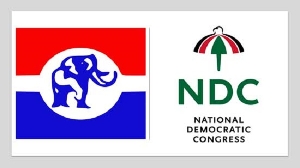As the 2024 elections get closer, political parties have intensified their activities towards achieving victory. One of the most common events in this period is the drafting and launching of a manifesto.
The New Patriotic Party (NPP) has launched its manifesto in the past week; the National Democratic Congress is also set to launch its manifesto today 24th August 2024. In this article, I seek to explain what is a manifesto and its importance.
Manifesto is derived from the Italian word manifesto, itself derived from the Latin manifestum, meaning clear or conspicuous. Its first recorded use in English is from 1620, in Nathaniel Brent's translation of Paolo Sarpi's History of the Council of Trent: "To this citation he made answer by a Manifesto". Similarly, "They were so far surprised with his Manifesto, that they would never suffer it to be published."
Manifestos have historically been used as the foundation of major political movements or revolutions. They have defined the basis for governments, political movements, dogma, constitutions, religion and defined the principles for which humankind strives to achieve (for better or worse).
One of the most notable manifestos is the “Declaration of the Rights of Man and the Citizen” as written through the collaboration of Thomas Jefferson with French General Lafayette.
A manifesto is a published verbal declaration of the intentions, motives, or views of the issuer, be it an individual, group, political party or government. A manifesto usually accepts a previously published opinion or public consensus or promotes a new idea with prescriptive notions for carrying out changes the author believes should actualised.
It is often political or artistic in nature but may present a political party’s or an individual's life stance. Manifestos relating to religious belief are generally referred to as creeds.
Importance of manifestos in an election campaign:
Manifestos are an important electoral tool, used by political parties to try and win the confidence and trust of the electorates in order to vote for them in an election. While some manifesto promises will have little impact on the electorate, headline pledges or slogans can feature heavily in the campaign, shape media narratives and potentially influence how people vote.
For example in the 2017 UK elections, the backlash against the Conservative Party’s policy on social care led Theresa May to change the party’s manifesto commitment. Manifestos are normally published during the campaign, approximately three to six months before polling day. Manifestos are typically launched at a campaign event covered by the media.
The role of manifestos in government:
It is important to be aware that political parties have no statutory obligation to fulfil their manifesto commitments when they are voted into office, however, while politicians may not see the pledges as binding there may be strong political reasons to stick to them.
Governments will usually frequently refer to their manifesto commitments or mandate while working to deliver their policies and programs, and in subsequent elections they may wish to demonstrate they have fulfilled previous commitments.
There are also several reasons that manifesto pledges will not translate directly into government policy. Some policies developed before the election may have been electorally popular, but turn out to be difficult to deliver in practice. This can be particularly true for the opposition party, who typically have fewer resources and more limited recent experience in government than the party in power.
Governments may also pass policies that were not contained in the manifesto. For example, Labour announced just five days after they won the 1997 election that the Bank of England would be granted operational independence, yet this had not featured in their manifesto.
Usually, electorates punish political parties who have not been able to fulfil at least 60% of their manifesto promises, this is viewed as deception or incompetence and no number of explanations or excuses such as the COVID-19 and the Russian-Ukraine war are accepted by the electorates. Because they expect the government to prepare for unforeseen circumstances.
Opinions of Saturday, 24 August 2024
Columnist: Awudu Razak Jehoney
Demystifying the concept of party manifestos
Opinions














